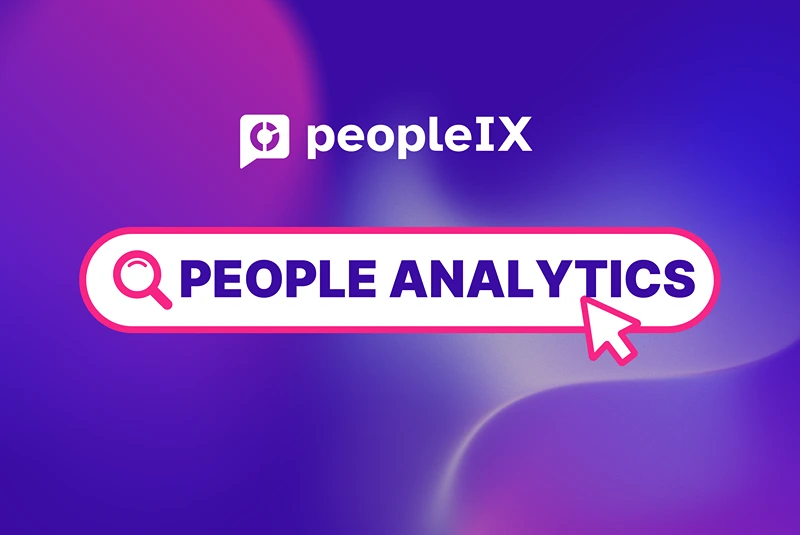In today’s business environment, the strategic use of data has become essential for organizations aiming to maintain a competitive edge. Within Human Resources (HR), People Analytics is proving to be a transformative force, enabling companies to make informed, data-driven HR decisions that significantly enhance employee engagement, retention, and overall workforce performance.
Why People Analytics is a Must-Have for Modern HR
People Analytics is more than just a trend—it’s a critical tool that can revolutionize HR operations. By analyzing key HR metrics such as employee turnover rate, performance evaluations, and employee engagement surveys, HR professionals can unlock insights that drive strategic improvements. In a marketplace where agility and foresight are crucial, integrating People Analytics into your HR strategy is no longer optional; it’s vital for long-term success.
6 reasons for People Analytics
Organizations are increasingly recognizing the value of leveraging People Analytics to optimize their HR functions. Here are some of the primary benefits:
1. Data-Driven Decision Making
In the digital age, relying solely on intuition is not enough. People Analytics empowers HR professionals to make data-driven HR decisions by analyzing metrics such as workforce performance, attendance, and training outcomes. This approach leads to more accurate strategic workforce planning, optimized recruitment strategies, and effective performance management analytics.
2. Enhancing Employee Engagement and Retention
High employee engagement and talent retention are crucial for organizational success. People Analytics allows companies to measure employee satisfaction metrics, understand factors influencing job satisfaction, and predict which employees may be at risk of leaving. By addressing these factors, organizations can implement targeted strategies to improve retention and create a more engaged workforce.
3. Predictive Analytics for Talent Management
One of the most powerful aspects of People Analytics is its predictive capabilities. By analyzing historical data on employee performance, skills, and career paths, companies can identify high-potential employees, plan for succession, and ensure a continuous pipeline of talent. Predictive HR analytics helps identify individuals who are likely to excel in leadership roles, enabling organizations to effectively nurture and develop future leaders.
4. Revolutionizing the Recruitment Process
Recruiting analytics can transform your hiring efforts by providing insights into the most effective sourcing channels, candidate assessment methods, and interview techniques. Analyzing data on successful hires, recruitment costs, and time-to-fill metrics can streamline recruitment, reduce hiring time, and improve the quality of new employees. This ensures that companies attract top talent that aligns with their culture and values.
5. Personalized Learning and Development
Tailoring learning and development plans to individual employees based on their skills, interests, and career aspirations is another significant advantage of People Analytics. By analyzing training outcomes and skill gaps, companies can offer personalized development opportunities that boost employee performance and satisfaction, fostering a culture of continuous learning and growth.
6. Promoting Diversity, Equity, and Inclusion
Diversity, equity, and inclusion metrics are key to fostering a thriving workplace. People Analytics provides valuable insights into diversity data, such as demographic representation, pay equity, and promotion rates. By monitoring and analyzing this data, companies can identify areas for improvement, track progress toward diversity goals, and create a more inclusive work environment that fosters belonging and respect among employees.
Implementing People Analytics: Build or Buy?
When considering People Analytics, organizations face a crucial decision: should they build a custom solution or purchase an existing People Analytics platform? Building an in-house solution offers tailored features and the flexibility to adapt to specific organizational needs, but it requires a significant investment in skilled talent, time, and resources. Conversely, purchasing a ready-made platform can expedite implementation, with pre-built HR dashboards and metrics that reduce the need for extensive data cleaning and setup.
Popular platforms like peopleIX offer a range of features tailored to HR needs. However, challenges such as HR data governance, implementation timelines, and the need for skilled analytics teams must be addressed. Ensuring compliance with data security regulations, setting realistic project timelines, and investing in training programs are crucial steps in overcoming these challenges.
The Future of People Analytics: Trends to Watch
The field of People Analytics is rapidly evolving, with emerging trends set to shape its future:
1. AI and Machine Learning Integration
The integration of AI and machine learning into People Analytics is revolutionizing how organizations process data and extract actionable insights. These technologies can identify patterns and trends, enhancing predictive capabilities and streamlining HR processes. By leveraging AI, HR professionals can proactively address potential issues and optimize decision-making.
2. Personalized Employee Experiences
As organizations recognize the importance of treating employees as individuals, People Analytics is increasingly focused on delivering personalized experiences. By tailoring development plans, training opportunities, and work environments to individual preferences, companies can improve job satisfaction, retention, and overall organizational success.
Ethical Considerations in People Analytics
As the use of People Analytics grows, so do concerns about ethics and privacy. Organizations must establish clear policies for HR data integration and usage, ensuring transparency and accountability while safeguarding employee information. Compliance with regulations like GDPR is critical to maintaining trust and mitigating risks associated with data misuse.
The integration of People Analytics in HR management has the potential to revolutionize how organizations understand and engage with their workforce. By leveraging data-driven HR decisions and HR data insights, HR professionals can drive strategic initiatives that enhance employee engagement, improve talent retention, and optimize workforce performance. Tools like peopleIX empower organizations to navigate the complexities of modern HR with ease, providing a robust platform for HR data integration, workforce analytics, and strategic decision-making. Embracing People Analytics is not just about staying competitive—it’s about setting the standard for the future of HR.
.webp)

.webp)
